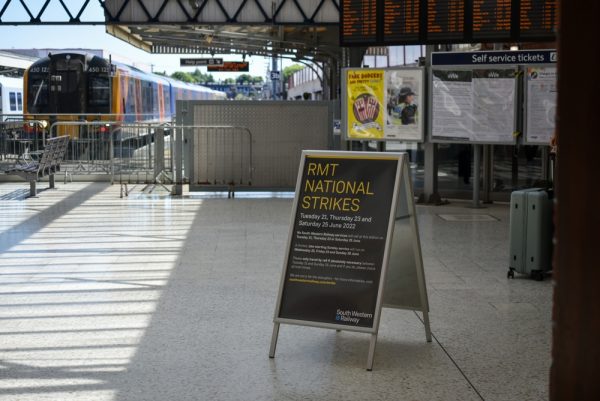As commuters face another wave of rail strikes this week, one of the busiest of the year, and with travel uncertainty set to continue for some time, Godfrey Ryan, CEO of transport specialist Kura, offers guidance for employers on how they can provide much needed support to their workforce on their commute.
“With continued public transport disruption, employees who need to rely on it to commute daily will be experiencing difficulty getting to and from their place of work this week and beyond. For those employees who need to travel to the workplace every day to earn a living, commuting chaos could have a detrimental impact on their mental health and performance at work.
“Employees who cannot work from home will be forced to suffer unreliable public transport or revert to the car, leading to a higher number of vehicles on the road, increased congestion and pollution, and most likely subjecting them to high parking costs as well as potential emission zone charges. As car ownership declines and the cost-of-living continues to rise, especially among city dwellers, the absence of a reliable means to get to and from work every day is reaching crisis point.
“Furthermore, as we move closer to 2030, where significant transport emissions reductions are expected to be achieved, the increased reliance on low occupancy vehicles for the daily commute isn’t going to bring us closer in line with these targets. Just one 49 seater coach can replace 31 cars (at average UK vehicle occupancy of 1.5 passengers per car).
“In order to improve employees’ commute and minimise disruption during the peak, Kura is calling on more employers to consider offering assistance with travel to and from work. This can include organising ride sharing or funding the provision of a coach or minibus shuttle service to enable staff to get to and from their place of work safely, reliably and comfortably so that they arrive on time, refreshed and ready to work
“As the war for talent rages on, especially in sectors like retail, manufacturing, distribution and hospitality, and the rising cost of living continues to put pressure on spending power, employers that can reduce the time, cost and inconvenience of the daily commute for staff will stand out and win the intensifying employee retention and recruitment contest.
“With travel disruption naturally having the biggest impact in winter, with cold, dark mornings and evenings the norm, employer support with the daily commute also increases safety for employees, an increasing concern. In fact, in Scotland, there is discussion of a Members’ Bill which would mandate that companies include safe transport home for shift workers as part of their licensing application to local authorities. Moves like this are a long time coming and a ray of light for employees in the current commuting darkness.
“In order to improve staff well being, performance and retention as well as reduce emissions, it is imperative that employers urgently consider how they can help make the commute a more tolerable experience in 2023.”
Download Kura’s “Future of Commuting” report here

